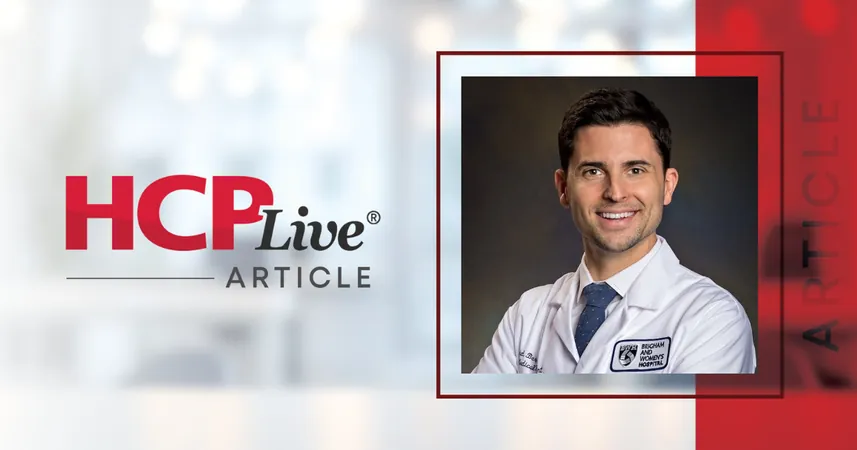
DAPA ACT Results: Dapagliflozin's Impact on Heart Failure Risk Questioned
2025-09-06
Author: Arjun
Dapagliflozin Falls Short in Reducing Heart Failure Risks
In a groundbreaking study presented at the European Society of Cardiology Congress 2025 in Madrid, researchers revealed that dapagliflozin, a prominent SGLT2 inhibitor, does not significantly lower the short-term risk of cardiovascular death or worsening heart failure (HF) in patients already hospitalized due to HF.
The Study at a Glance
The DAPA ACT HF-TIMI 68 trial involved over 2,400 patients from various countries, including the USA, Canada, and Poland, who were admitted with signs of HF. Aimed at assessing whether starting dapagliflozin during hospitalization could effectively reduce early cardiovascular risks, the study was meticulously designed as a double-blind, placebo-controlled trial.
Key Findings That Raise Questions
Despite initial hopes, the study found no significant difference in the rates of cardiovascular-related events between those taking dapagliflozin and those receiving a placebo. In fact, 10.9% of patients on dapagliflozin suffered from cardiovascular death or worsening HF compared to 12.7% in the placebo group (hazard ratio [HR], 0.86; P = .20). Dapagliflozin showed a slight reduction in all-cause mortality at 3%, compared to 4.5% for placebo, but the overall impact on heart failure outcomes was less definitive.
Why Does This Matter?
Heart failure has increasingly become the leading cause of hospitalization worldwide, representing a pressing concern for healthcare systems. A better understanding of how medications like dapagliflozin operate in this specific hospital context is crucial. As David Berg, MD, the principal investigator for the trial, noted, there’s a dearth of data on the impact of initiating SGLT2 inhibitors like dapagliflozin in hospitalized patients.
Pooling Insights for Broader Understanding
Although the DAPA ACT trial did not yield the desired outcomes, a meta-analysis including various SGLT2 trials suggested potential benefits when these medications are initiated in hospital settings. Other SGLT2 inhibitors like empagliflozin exhibited a significant reduction in both cardiovascular death and overall mortality, indicating that while dapagliflozin may not have lived up to expectations, the class of medications could still hold promise.
What Lies Ahead for Heart Failure Treatment?
The results from DAPA ACT highlight the complexities surrounding heart failure management and the potential for other therapeutic methods to improve outcomes. As the search for effective treatments continues, further research and innovative approaches will be essential for bettering the lives of patients battling heart failure.




 Brasil (PT)
Brasil (PT)
 Canada (EN)
Canada (EN)
 Chile (ES)
Chile (ES)
 Česko (CS)
Česko (CS)
 대한민국 (KO)
대한민국 (KO)
 España (ES)
España (ES)
 France (FR)
France (FR)
 Hong Kong (EN)
Hong Kong (EN)
 Italia (IT)
Italia (IT)
 日本 (JA)
日本 (JA)
 Magyarország (HU)
Magyarország (HU)
 Norge (NO)
Norge (NO)
 Polska (PL)
Polska (PL)
 Schweiz (DE)
Schweiz (DE)
 Singapore (EN)
Singapore (EN)
 Sverige (SV)
Sverige (SV)
 Suomi (FI)
Suomi (FI)
 Türkiye (TR)
Türkiye (TR)
 الإمارات العربية المتحدة (AR)
الإمارات العربية المتحدة (AR)